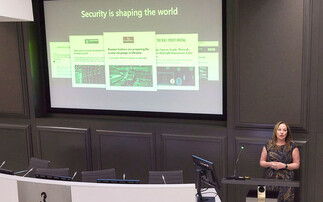100-strong team will aid protection of 'polarising' drivers, along with increasing data security and hack prevention
Controversial taxi-ordering service Uber is set to quadruple the size of its cybersecurity team to protect customer data, defend against hackers and even protect its drivers from attack. The com...
To continue reading this article...
Join Computing
- Unlimited access to real-time news, analysis and opinion from the technology industry
- Receive important and breaking news in our daily newsletter
- Be the first to hear about our events and awards programmes
- Join live member only interviews with IT leaders at the ‘IT Lounge’; your chance to ask your burning tech questions and have them answered
- Access to the Computing Delta hub providing market intelligence and research
- Receive our members-only newsletter with exclusive opinion pieces from senior IT Leaders























